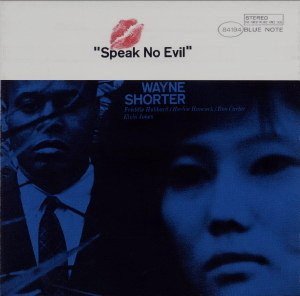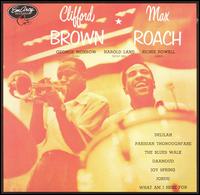
Quintet is a 1979 American post-apocalyptic science fiction film directed by Robert Altman. It stars Paul Newman, Brigitte Fossey, Bibi Andersson, Fernando Rey, Vittorio Gassman and Nina Van Pallandt.

Foreststorn "Chico" Hamilton was an American jazz drummer and bandleader. He came to prominence as sideman for Lester Young, Gerry Mulligan, Count Basie, and Lena Horne. Hamilton became a bandleader, first with a quintet featuring the cello as a lead instrument, an unusual choice for a jazz band in the 1950s, and subsequently leading bands that performed cool jazz, post bop, and jazz fusion.
Raymond Allen Draper was an American jazz tuba player.

Miles Smiles is an album by the jazz musician Miles Davis. It was released on February 16, 1967 through Columbia Records. It was recorded by Davis and his second quintet at Columbia 30th Street Studio in New York City on October 24 and October 25, 1966. It is the second of six albums recorded by Davis' second great quintet, which featured tenor saxophonist Wayne Shorter, pianist Herbie Hancock, bassist Ron Carter, and drummer Tony Williams.

Nefertiti is a studio album by the jazz trumpeter and composer Miles Davis. It was released in March 1968 through Columbia Records. The recording was made at Columbia's 30th Street Studio over four dates between June 7 and July 19, 1967, the album was Davis' last fully acoustic album. Davis himself did not contribute any compositions – three were written by tenor saxophonist Wayne Shorter, two by pianist Herbie Hancock, and one by drummer Tony Williams.

Donald Richie was an American-born author who wrote about the Japanese people, the culture of Japan, and especially Japanese cinema. Although he considered himself primarily a film historian, Richie also directed a number of experimental films, the first when he was seventeen.

Richard Powell was an American jazz pianist, composer, and arranger. He was not assisted in his musical development by Bud, his older and better known brother, but both played predominantly in the bebop style.

Eddie Jefferson was an American jazz vocalist and lyricist. He is credited as an innovator of vocalese, a musical style in which lyrics are set to an instrumental composition or solo. Jefferson himself claims that his main influence was Leo Watson. Perhaps Jefferson's best-known song is "Moody's Mood for Love" which was recorded in 1952, though two years later a recording by King Pleasure catapulted the contrafact into wide popularity. Jefferson's recordings of Charlie Parker's "Parker's Mood" and Horace Silver's "Filthy McNasty" were also hits.

Speak No Evil is the sixth album by Wayne Shorter. It was released in June 1966 by Blue Note Records. The music combines elements of hard bop and modal jazz, and features Shorter on tenor saxophone, trumpeter Freddie Hubbard, pianist Herbie Hancock, bassist Ron Carter and drummer Elvin Jones. The cover photo is of Shorter's first wife, Teruko (Irene) Nakagami, whom he met in 1961.
Monte Rex Budwig was a West Coast jazz double bassist, professionally known as Monty Budwig.

Richie Cole was an American jazz saxophonist, composer, and arranger.

Richie Kamuca was an American jazz tenor saxophonist.
A quintet is a group or formation of five members, particularly musicians
"I Could Write a Book" is a show tune from the 1940 Rodgers and Hart musical Pal Joey, where it was introduced by Gene Kelly and Leila Ernst. It is considered a standard.

Water Babies is a compilation album by American jazz trumpeter Miles Davis. It compiled music Davis recorded in studio sessions with his quintet in 1967 and 1968, including outtakes from his 1968 album Nefertiti and recordings that foreshadowed his direction on In a Silent Way (1969), while covering styles such as jazz fusion and post-bop. Water Babies was released by Columbia Records in 1976 after Davis had (temporarily) retired.

John Altman is an English film composer, music arranger, orchestrator and conductor.

Clifford Brown & Max Roach is a 1954 album by influential jazz musicians Clifford Brown and Max Roach as part of the Clifford Brown and Max Roach Quintet, described by The New York Times as "perhaps the definitive bop group until Mr. Brown's fatal automobile accident in 1956". The album was critically well received and includes several notable tracks, including two that have since become jazz standards. The album was inducted into the Grammy Hall of Fame in 1999. It is included in Jazz: A Critic's Guide to the 100 Most Important Recordings, where it is described by New York Times jazz critic Ben Ratliff as "one of the strongest studio albums up to that time".

Clifford Brown and Max Roach at Basin Street is a 1956 album by the Clifford Brown and Max Roach Quintet, the last album the quintet officially recorded. Apart from Sonny Rollins Plus 4, it was the last studio album Brown and pianist Richie Powell recorded before their deaths in June that year. The title is a reference to the Basin Street East jazz club, where the quintet had performed several times.
David Berkman is an American jazz pianist, composer, arranger and educator.

Venus Records is a Japanese jazz record label. It was founded in 1992 by Tetsuo Hara, who had worked as a producer for RCA Victor. It mostly works with a select group of artists from Italy, the United States, and Japan, and uses a signature 24-bit mastering process, named "Hyper Magnum Sound," that produces "very powerful sound with strong presence". It is also known for its album covers, which use well-known photographers and frequently feature nudity.















